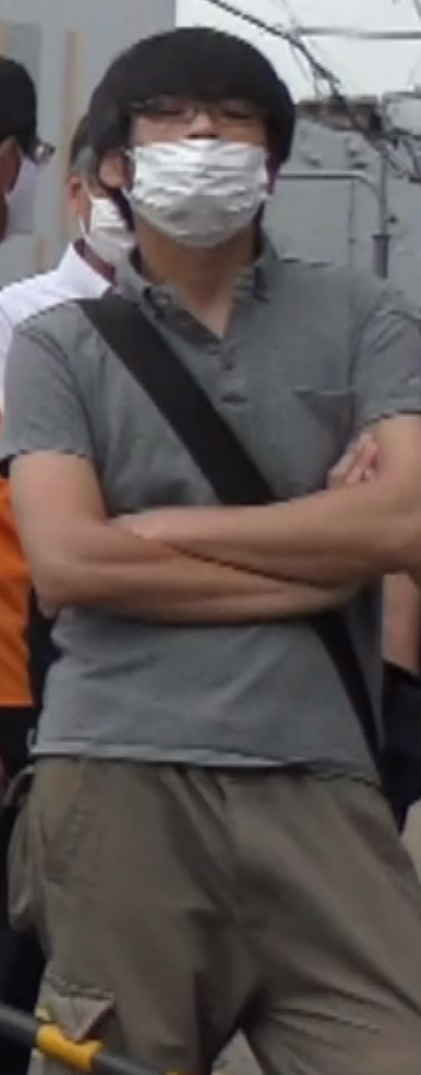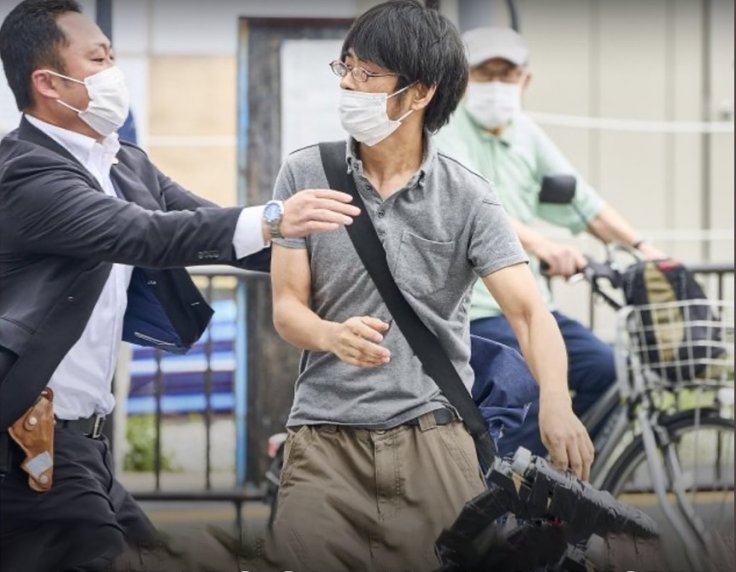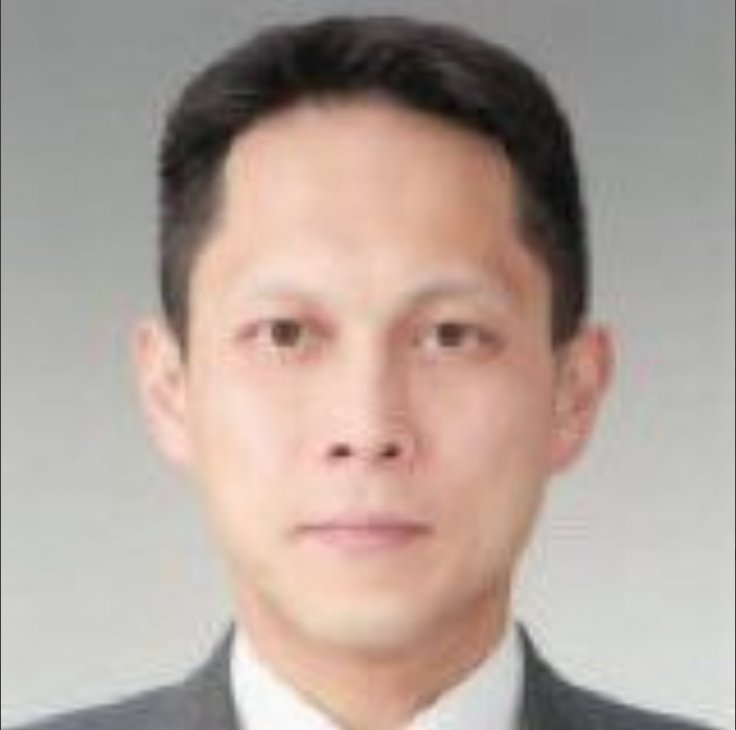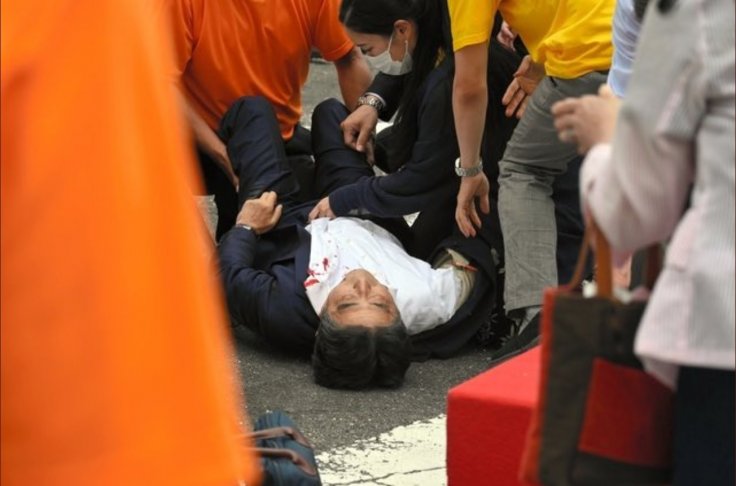The gunman who shot dead former Japanese Prime Minister Shinzo Abe on Friday morning has been identified as Tetsuya Yamagami, a 41-year-old ex-marine, according to Japanese state media NHK. Yamagami was standing behind Abe and fired two shots that hit him in the chest from behind. Abe immediately collapsed after that and was rushed to the hospital.
Hours later Abe, 67, died of his injuries at a hospital in Nara city in Western Japan. Yamagami was captured within seconds after firing the two fatal gunshots. Police are interrogating him but the motive behind Abe's assassination is still unclear. Several videos have emerged on social media that show Yamagami standing behind Abe with the gun hidden in his bag before shooting at him.
Unhappy with Abe

Seconds after shooting at Abe, who was delivering a campaign speech at Nara city on Thursday morning, Yamagami tried to flee the scene. However, he was tackled within seconds by police officers and taken into custody. Police later confirmed Yamagami as the suspected shooter.
Not much has been shared by the police about the 41-year-old, except that he is also a resident of Nara city. However, a lot of details have been emerging from local media about the shooter.

As of now, it is believed that Yamagami was the lone operator. Yamagami is reportedly an ex-military member -- a former member of the Japanese Maritime Self-Defense Force -- reported Fuji TV. Several Ministry of Defense officials also confirmed that Yamagami had been working for the Maritime Self-Defense Force for three years until around 2005.

According to a witness to the attack who spoke to NHK, the alleged shooter did not try to flee after the shooting. Instead, he put the rifle down and stood still while being apprehended by Abe's security officers.
v#ShinzoAbe #安å€ã•ã‚“
— Random Cassette (@RandomCassette) July 8, 2022
Offender, 41-year-old Japanese national Tetsue Yamagami, served in the Navy.
With a homemade double-barreled gun, 2 shots, hit the lung. Abe in critical condition. pic.twitter.com/oS9QTQbQgK
This, however, couldn't be verified as one video shows him running before he is overpowered by two cops. His gun was seen lying on the road. According to reports, the head of Japan's hunters' association told NHK that the weapon used in the attack was a self-modified gun. The police had earlier identified the weapon as a shotgun.
Motive Unclear
Sasaki Yohei of Dainihon Ryoyukai told NHK that the sound of the firing did not match that of a shotgun. Witnesses had reported hearing a "dry, popping sound," said the Japanese media report.
Video shows the moment former Japanese PM Shinzo Abe was shot from behind as he campaigned in the city of Nara. Abe was rushed to the hospital in critical condition.
— Al Jazeera English (@AJEnglish) July 8, 2022
Read more: https://t.co/gWJh3VaXRc pic.twitter.com/1DC7onCKAy
Yohei added that there was too much smoke left over from the shooting for it to have been an ordinary gun.
Yamagami is currently being questioned at Nara Nishi police station but the motive behind the shooting is still unclear. According to reports, after his arrest, Yamagami told police that he "targeted Abe with the intention of killing him."

He reportedly also said that he shot Abe because he was "dissatisfied" with Abe and was waiting for this opportunity to shoot him.
Videos showed a man who appeared to be Yamagami being tackled by security guards and wearing a grey T-shirt and beige pants. Prior to that, another video shows people watching Abe deliver his speech when suddenly a loud sound is heard and a puff of smoke is seen. Within a couple of seconds, another sound is heard and the smoke thickens.

Those standing far away still didn't understand what had happened till they saw police chasing Yamagami.
Abe was making a campaign speech outside a train station when the gunshots were heard. He was hit in the chest and immediately collapsed. Paramedics rushed to the scene to revive him and he was airlifted to a hospital.

Abe's death was announced six hours later, shortly after wife, Akie, arrived at his bedside. His death resulted from excessive blood loss following a cardiac arrest after being hit twice in the chest.
Prime Minister Fumio Kishida called the shooting an attack on "the foundation of democracy", describing it as "heinous", "barbaric and malicious", and "absolutely unforgivable". "I would like to use the most extreme words available to condemn this act," he added.

The shooting, which occurred in a nation that takes pride in its low rates of violent crime and has highly strict gun restrictions, is a deeply upsetting episode in the life of Japan's most well-known leader.
Abe was Japan's longest-serving Prime Minister, having held the position for nine years over a period of two terms.









